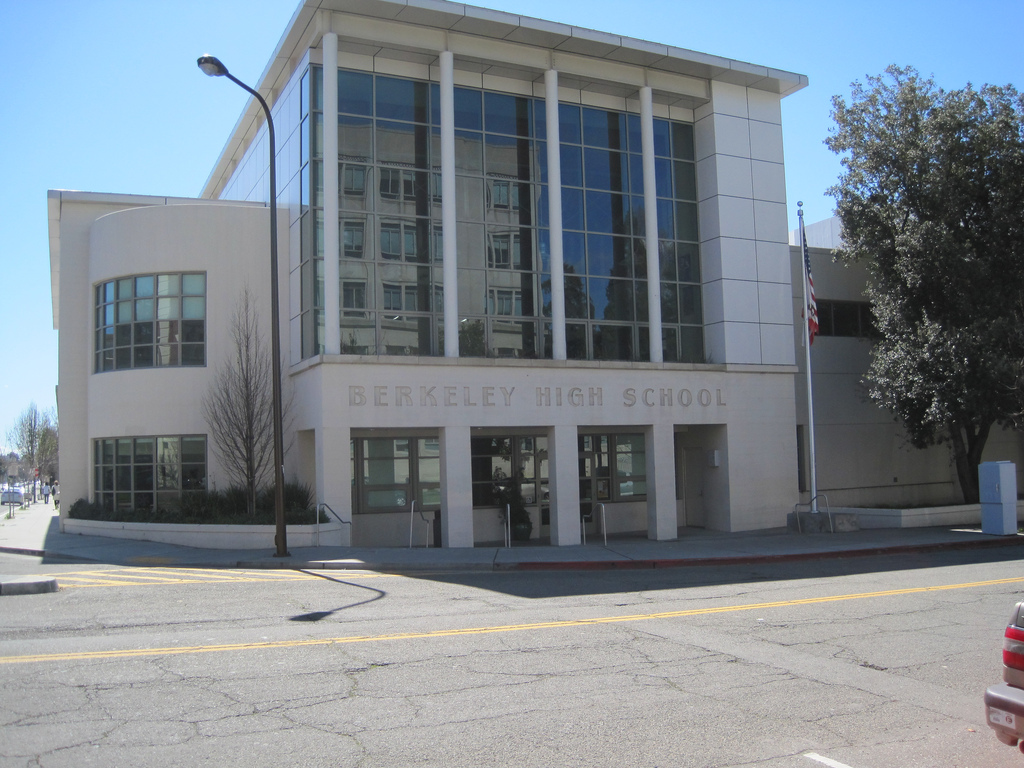During her junior year at Berkeley High last fall, Ava Murakami overheard a classmate make vulgar, sexual comments about a teacher.
Murakami was disturbed, and said the student had also made derogatory and offensive comments about women and their physical appearances. She decided to file a formal complaint through Title IX, the federal law that bans discrimination based on sexual orientation and gender identity in schools.
“The intention was that I would file the report on behalf of my community, be the person who stepped up and didn’t let it keep going on forever,” she said. “I thought it would be one and done. I sign the paper, it’s done with.”
But that’s not what happened. Instead, she said the process was drawn out and cryptic, and involved dozens of email exchanges. She said it was difficult to get answers on the status of her complaint, which she was told would be confidential. Then, months into the process, she learned that her name could be shared if students’ parents asked for that information.
“I was confused,” she said. “So I withdrew (the complaint), despite already feeling exposed.”
Now, as the commissioner of Women’s Rights and Equity at Berkeley High, Murakami aims to help other students avoid that experience. She hopes a newly created role in the district, called a Title IX Student Support Counselor, could make a difference. The district is still hiring for the position, but whoever takes on the job will provide counseling and guidance for students going through the complicated and arduous process of filing Title IX complaints.
In an interview with KQED, Berkeley Superintendent Enikia Ford Morthel said she could not comment on the specifics of what occurred in that case. But she said the district is committed to making sure students and staff know what their rights are, which is part of the reason this new role was created.
“It's not just about the investigation itself and the outcome, it's about, ‘How do I help you heal? How do I help you navigate while you're in real time experiencing the fallout?,’” Ford Morthel said.
The proposal for the position was initially drafted “out of pure rage” by Genevieve Mage, a yearbook advisor at Berkeley High. Mage is the same teacher who helped uncover sexual assault allegations against Matt Bissell, a former chemistry teacher at Berkeley High. A Berkeleyside investigation found Berkeley High knew of allegations that he sexually harassed students before he was allowed to quietly resign in 2021.
Mage said students turn to her for help because they trust her, but she is not paid to be a therapist, an investigator and a teacher at the same time.

She also saw firsthand last school year how agonizing the Title IX process can be. She says a student had threatened to rape and kill her, and the student stayed in her class for about a week after she asked for him to be removed for her safety.
When his behavior continued outside of her class, she filed a Title IX complaint, which she also expected to be kept confidential.
“I inadvertently outed students that had come to me in confidence and told me what had happened,” she said. “You also have to imagine that I have power. I have tenure. I have a union to support me legally. How do you think a 15-year-old feels?”
The Title IX Student Support Counselor, a role more common on college campuses but rare in high schools, would advocate for the needs and emotional well-being of students, including for those who file complaints and for people who are accused.
It’s also designed to address economic disadvantages where students with access to attorneys receive guidance and support, and students with fewer resources can be left on their own.
“Title IX cares about government compliance. The district cares about liability and who's going to get sued. And the student is trapped between both of those adults,” Mage explained. “There is no one there that's just like, ‘Hey, what do you need? What do you want to happen?’”
Mage is optimistic, but also worries that the district will struggle to hire someone for the position while the school year is already underway, especially when interviewing for the job has yet to begin. The district has grappled with high turnover and low resources in the Title IX office for years.
On top of the student advocate role, the district will need to hire a new investigator after the previous person in that post stepped down in September.
The federal rules governing how schools respond to Title IX complaints are also expected to change by the next school year, a move many advocates for victims and survivors are eager to see. The Biden administration is in the process of overturning Title IX regulations adopted by former Secretary of Education Betsy DeVos, which offered greater protections for people accused of misconduct and significantly narrowed the definition of sexual harassment.
As for Ava Murakami, she says a few weeks ago she met with the district’s Title IX coordinator and compliance officer, Jasmina Viteskic, who started the job in November. Viteskic holds office hours for students at Berkeley High twice a week.
Murakami said Viteskic walked her through the Title IX process, providing the kind of transparency that was missing when she first sought out help.
“And she explained to me, ‘This is where they did you wrong,’” Murakami said. “I just kept having this, like, ‘Oh,’ moment of just, like, ‘Oh, that’s what happened with my report.’ So I actually feel a lot better.”
Murakami said Viteskic also brought up the demands fellow students had drafted when they first walked out of class to protest the school’s response to sexual misconduct back in 2020.
“That was crazy cool,” Murakami said.
The demands include regular training on consent for student athletes as well as a long-term and properly paid Title IX coordinator.
Students like Murakami plan to continue revising the demands this year based on the school’s progress, and on what their classmates need.
